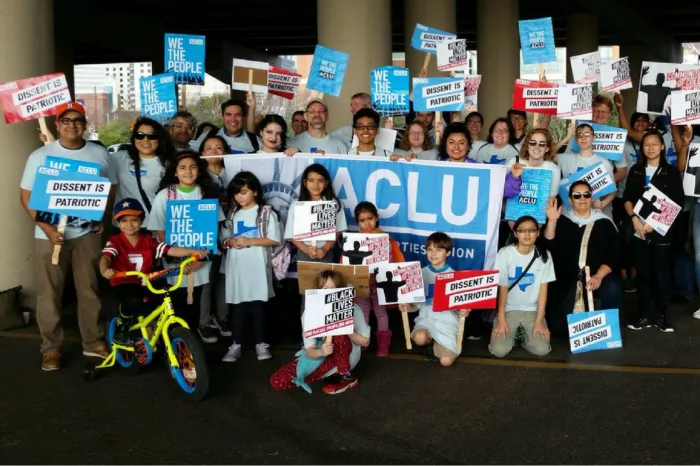CHARLESTON — In response to growing concerns over the intersection of religion and education, the American Civil Liberties Union (ACLU) of West Virginia has introduced an online tool for parents and students to report instances of religious instruction in science classrooms. Launched on Friday, this initiative aims to provide a platform for those who believe that their rights are being compromised by the introduction of religious teachings in public school science curricula.
Legislative Background
The development follows the recent passage of Senate Bill 280 by the West Virginia Legislature, which allows teachers to address student inquiries regarding various scientific theories, including those related to the origins of life and the universe. Advocates of the bill argue that it empowers educators to engage with students on diverse perspectives, particularly intelligent design, which has faced legal scrutiny and was ruled as not constituting legitimate science by a federal judge in Pennsylvania.
Despite the intentions behind the legislation, concerns have been raised regarding its vague language. Critics, including some lawmakers, warn that the bill may open the door for a wide array of religious concepts to be presented as scientific fact. The law officially took effect on June 7.
Concerns About Religious Influence
Aubrey Sparks, Legal Director of the ACLU of West Virginia, expressed significant reservations about the potential implications of the new law. In a statement, she noted, “It’s entirely unclear what exactly the final version of this bill seeks to permit, because it was already lawful for teachers to answer questions about scientific theories.” Sparks emphasized the fundamental constitutional right to freedom of religion, asserting that the state cannot impose specific religious viewpoints on students.
Sparks highlighted the worry that the law may inadvertently encourage teachers to present their personal religious beliefs as scientific truths. The ACLU plans to closely monitor the complaints filed through the new tool and may use this information in potential litigation aimed at protecting students’ rights.
The ACLU’s New Reporting Tool
The newly launched online tool serves as a mechanism for parents and students to document and report instances where they believe religious instruction is encroaching upon scientific education. This resource empowers individuals to voice their concerns and seek accountability in educational settings.
The ACLU’s initiative underscores the importance of maintaining a clear boundary between religious beliefs and scientific instruction in public schools. By facilitating an accessible reporting process, the organization aims to gather data that will illuminate trends and potential violations of the constitutional separation of church and state.
Implications for Education in West Virginia
The introduction of Senate Bill 280 has reignited a longstanding debate over the role of religion in public education, particularly in subjects such as science. Proponents argue that it fosters critical thinking and encourages students to explore a range of viewpoints. However, opponents fear that it may dilute the scientific rigor of education and promote religious ideologies in place of established scientific principles.
The ACLU’s actions come at a pivotal moment when educational institutions across the country are grappling with similar issues. As states consider legislation affecting the curriculum, the ACLU aims to protect the integrity of science education by advocating for clear guidelines that prevent religious teachings from infiltrating public school classrooms.
Looking Ahead
As parents and students begin to utilize the ACLU’s new tool, the organization anticipates that it will shed light on the extent of the issue within West Virginia schools. The gathered data may inform future legal challenges and legislative efforts aimed at reinforcing the principle of secular education.
The ACLU’s commitment to monitoring the situation reflects a broader commitment to civil liberties and the protection of students’ rights. By offering a means to report grievances, the ACLU seeks to ensure that all students receive an education grounded in evidence-based science rather than personal beliefs.
Conclusion
The launch of the ACLU’s online tool represents a proactive step towards safeguarding the separation of church and state in West Virginia’s educational system. As the debate over the appropriate boundaries of religious instruction in public schools continues, the voices of parents and students will play a crucial role in shaping the conversation.
With the ACLU prepared to take action based on the complaints received, this initiative is poised to influence not only local educational policies but also contribute to the ongoing national discourse on the role of religion in public education. As this situation unfolds, the focus will remain on protecting students’ rights to receive a comprehensive and unbiased education free from religious influence.


